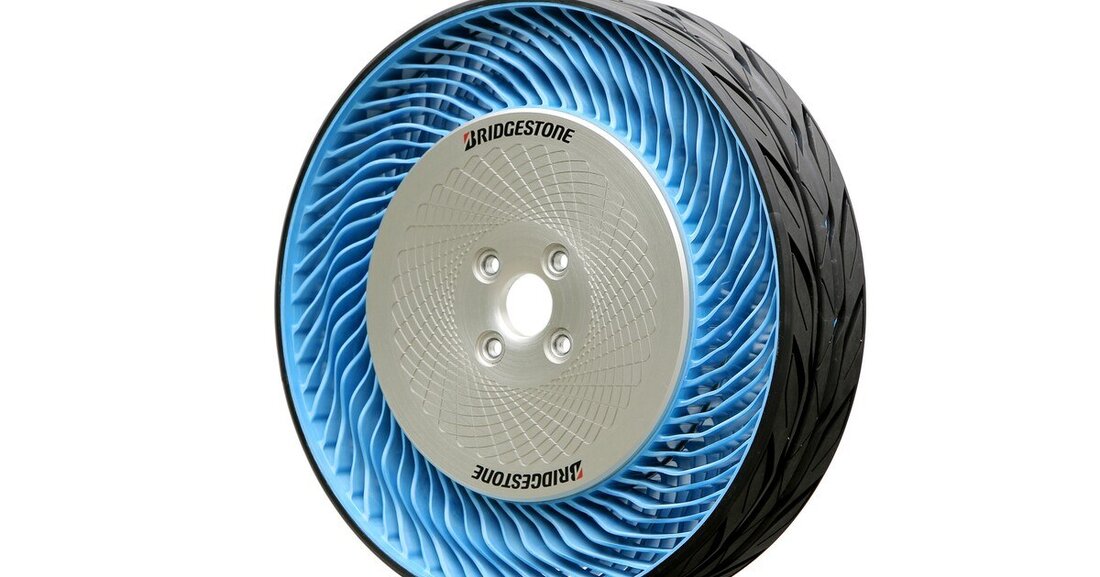The future of tires: black, round and damn clever
The tires of tomorrow can do so much more than we can imagine today. There are hardly any limits to the tire industry's fantasies and developments. One thing is certain: tires will become even more important in the future.

The future of tires: black, round and damn clever
The corona pandemic will permanently change the mobility industry. Hardly any manufacturer is not rushing forward with a new electric offensive. The car of tomorrow may still have an internal combustion engine, but that is not guaranteed.
What is more certain is that the cars of the near future will all have four wheels and tires. Yes, they'll probably stay black and round for now. But that's it for the similarities with current tires. The tires of the future will make a significant contribution to range, driving safety and comfort both passively and actively.
Short term trends
Currently that is The hottest topic on the tire market is all-season tires. Increasing urbanization, coupled with changing mobility needs, mean that all-weather tires are a real shooting star in mild climate regions. With safety-focused driving characteristics, it saves the user from having to change summer and winter tires and vice versa. The constantly slightly declining annual mileage results in significant savings for end consumers: both the working time for reconnecting and storage costs are eliminated. Even if the all-season tires have to be replaced more regularly, as a set of tires covers more kilometers in a shorter time than a set of seasonal tires, there are savings because you only need one set of rims and tires TPMS set needed. In addition, modern all-season tires score points with good driving characteristics under most conditions - with the exception of extreme situations.
For Austria, all-season tires are of course always a compromise. Which has its justification in the inner city in the flat, milder east. Otherwise, Austria remains a winter and summer tire country, as the temperature and weather differences are too great throughout the year. Note: The all-season tire would be almost ideal, especially in spring and autumn, where temperature differences of 20 degrees Celsius or more occur on the same day.
Due to the rapidly emerging electromobility – and the associated increase in the weight of car models – Continental already has one new load index introduced.
Also exciting: Falken is working on one system, which means that tire sensors will no longer need a battery in the future. This would be a significant improvement for tire handling.
Long-term trends
If we look several years into the future, very exciting times lie ahead for the tire industry, the tire trade and also end consumers. Pirelli has with that Cyber Tyres has already developed a tire connected to the car for series production. Michelin is also networking its tires, but with RFID chips, which initially simplify tire handling and logistics. Michelin is also expected to soon develop an airless tire for passenger car models ( Uptis ) that should run practically maintenance-free and almost damage-free. The Bridgestone Airfree concept tire uses a similar idea.
Goodyear goes one step further and presents the study “reCharge” a tire that regenerates itself through various capsules and can therefore fluctuate between summer and winter properties.
In the Interview with Bridgestone we learn that he sees the Japanese tire company as having several tasks in the tires of the future, including sustainability. Among other things, you want to work with the Techsyn technology Improve durability by a full 30 percent while reducing rolling resistance.
The topic of sustainability is also something that Michelin is already working on new recycling options for old tires thinks. By 2050, the French manufacturer wants to bake its tires 100 percent sustainably, exclusively from renewable, recycled, organic or otherwise sustainable materials. And Continental has been researching rubber from dandelions for several years ( Taraxagum ) to keep the environmental footprint smaller. The German manufacturer also wants – like Bridgestone – to produce completely sustainably by 2050.

 Suche
Suche
 Mein Konto
Mein Konto